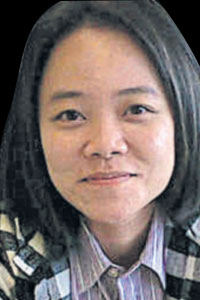South Korean actor Lee Jung-jae recently bagged the Best Actor title at the 27th Critics Choice Awards in Los Angeles earlier this month. This makes him the first Korean actor to take home the Best Actor accolade in the Drama Series category. Lee is known internationally for his lead role in the nine-episode survival drama Squid Game.
His lead role from the hit show also earned him the crown of Best Actor in the Drama category at the 28th Screen Actors Guild (SAG) Awards last month in the United States. Lee was also nominated for Best Actor -- Television Series Drama at the 2022 Golden Globe Awards which took place in January.
Followings its release in September last year, it only took Squid Game four weeks to become Netflix's most-watched show ever in any language, according to a Bloomberg report. The 77-year-old South Korean actor O Yeong-su also won the country's first Golden Globe award in January for his supporting role in the series, making him the first South Korean ever to win a Golden Globe.
Squid Game is among many examples of South Korea's soft power that has made an impact all over the world. Besides Squid Game, cultural products from South Korea serve as the eyes through which people look into the country and learn national and cultural aspects. For example, there is the Oscar-winning Parasite, the seven-member boy band BTS, who were named Artist of the Year at the 2021 American Music Award, and the phenomenal success of Blackpink's Lisa. People around the world not just know but recognise, if not follow, South Korea's lifestyle and culture through these forms of entertainment.
Thailand's efforts to expand its soft power through film, food, fashion and art have been discussed over the years, with the latest one being Pad Thai: The Secret Recipe, a 50-minute movie telling the story of Sen Jan, a young female culinary student whose dream is to win the Final Chef competition. Struggling through family drama and her mother's traumatic past where the family business of selling pad Thai led to her father's fatal accident, Sen Jan hunts for the secret recipe and chooses the dish to showcase her cooking skills as part of the contest.
Currently available via Thai PBS's YouTube Channel, Pad Thai: The Secret Recipe is now being screened at the Montanosa Film Festival 2022 running until tomorrow at Baguio Creative City in the Philippines.
Although the movie is a good attempt to harness and enhance Thailand's soft power through culinary history, some people believe it is going to be a wasted effort.
Think of the 2003 South Korean historical drama Dae Jang Geum which tells the tale of an orphaned kitchen cook who becomes the king's first female physician, or other popular contemporary series like Crash Landing On You, The King: Eternal Monarch and What's Wrong With Secretary Kim?. It is through their interesting storylines and talented cast that the audience sees how South Korean people eat and live without being forced to recognise cultural elements. Through the tantalising images of dishes like ramyeon (Korean-style instant noodles), jjajangmyeon (noodles in black bean sauce), grilled pork belly as well as fried chicken and beer highlighted in films and series, soft power from South Korea has gradually conquered people all over the world and led to the export of the country's lifestyle and culture.
In Pad Thai: The Secret Recipe, of course, the audience sees Thailand's iconic dish. But apart from that, they are forced to consume other nationalistic elements -- from culinary Thainess down to the nation-building programme under the government of Field Marshal Plaek Phibunsongkhram. And somehow, after almost 50 minutes of coercion, the audience might probably feel they have had enough despite the positive vibe the movie tries to share.
Following the release of Pad Thai: The Secret Recipe, Culture Minister Itthiphol Kunplome was not wrong to say that soft power can be harnessed from the "5Fs" of culture-based commodities which include food, film, fashion, fighting (Thai boxing) and festivals. But for soft power to expand successfully, it should be through "co-opt" rather than "coerce". Thailand's soft power doesn't necessarily have to be very Thai.
In Squid Game, hundreds of cash-strapped players accept a strange invitation to compete in traditional South Korean children's games. After each game, losers end up being killed and only the winners go on to the next round. Through the nine episodes of blood, brutality and death, the audience learns what South Koreans play as kids such as games like Red Light, Green Light, tug-of-war, the marble game, and squid game. After the series ended, the popularity of dalgona, a Korean sugar candy treat, also skyrocketed in the United States.
Thailand should learn from this.
Arusa Pisuthipan is the editor of the Life section of the Bangkok Post.
